In This Article
Causes Of Pigmentation On Face: Treatments & Prevention Tips
Noticing some areas of your skin becoming darker than others can raise concern in many. Those dark patches on your face, especially on your cheeks, forehead, around your eyes, and mouth, indicate a medical condition. This skin discolouration, called pigmentation, is a common condition in both men and women. Although not harmful, it can make people self-conscious and cause them distress. While some of us may be familiar with the causes, most individuals are unaware of them. Here we are with this article to explain the various causes of pigmentation and the available treatment options. Be sure to read until the end for valuable insights and expert solutions.
In This Article
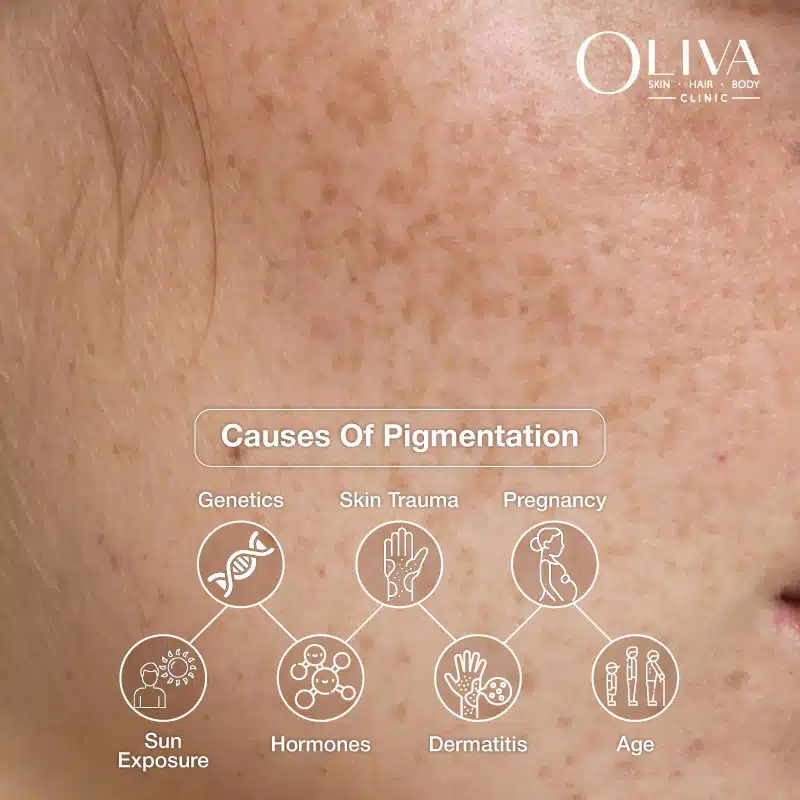
What Causes Pigmentation?
Pigmentation primarily occurs when our body produces more melanin than it should. It often manifests as dark patches, spots or uneven skin tone. Several factors can trigger excessive melanin production in the body. Here is a breakdown of the causes of pigmentation:
- Sun Exposure: When you get exposed to the sun for an extended period, your body will produce more melanin as a defensive mechanism to protect against the UV rays. [1] This causes dark patches or spots on your skin, also known as sunspots or age spots.
- Genetics: Pigmentation concerns like freckles are hereditary [2] and can darken when exposed to the sun. Individuals with a genetic predisposition are highly prone to developing pigmentation.
- Hormones: Hormonal fluctuations, due to birth control pills or hormone therapy, can increase melanin production, causing dark patches on your skin.
- Drug Side Effects: Sometimes, pigmentation is a side effect of certain medications that cause an increase in melanin production.
- Inflammation and Skin Trauma: When your skin heals from an injury, such as cuts, burns, or acne, it causes post-inflammatory hyperpigmentation (PIH).
- Addison’s Disease: Certain medical conditions, like Addison’s disease, [3] can cause hyperpigmentation by increasing melanin production.
- Age: As you age, your skin becomes more prone to pigmentation [4] and age spots due to long-term exposure to the sun. The UV rays damage melanocytes and cause uneven melanin distribution.
- Rosacea: The inflammation in rosacea can damage melanocytes, which may cause them to overproduce melanin.
- Dermatitis: Atopic dermatitis, also called eczema, can cause post-inflammatory hyperpigmentation after flare-ups settle down.
- Pregnancy: Hormonal disorders during pregnancy can trigger increased melanin production, causing melasma. [5]
- Thyroid Disease: Thyroid disorders can affect your hormone levels and trigger excess melanin production, resulting in melasma.
How To Identify The Root Cause?
Identifying the exact cause of pigmentation will help in designing a perfect solution that effectively treats the condition. We recommend consulting a dermatologist whenever you notice persistent discolouration, or unusual spots that appear different and cause itching or bleeding, or dark spots that continue to spread or change in appearance. Your dermatologist will accurately diagnose the root cause of pigmentation. This is what you can expect during your consultation with an expert dermatologist at client-first clinics like Oliva:
- A physical examination to analyse your skin condition using a Dermascope. They will identify the type and severity of pigmentation.
- The dermatologist will review your personal and family medical history to learn if you or any of your family members had it before. They will ask you questions about when and how it started, and if you had used any over-the-counter treatments or medications before.
- They will even ask for blood tests to check if you have any underlying medical conditions or hormonal disorders that might be causing discolouration.
- Based on this detailed analysis, they will diagnose the root cause of pigmentation and suggest a treatment plan customised to your unique needs.
How To Treat Pigmentation?
As a part of your personalised treatment plan for pigmentation, the dermatologists at Oliva may recommend the following treatments either as a standalone or in combination. Let us learn how each treatment works in reducing the appearance of pigmentation:
-
Laser Toning:
Laser Toning is an advanced pigmentation treatment at Oliva that uses advanced Q-Switched Nd:YAG laser technology. During the procedure, our dermatologist will move the laser device across the areas to be treated. The laser beam penetrates the outer layer of the skin to target the melanin and destroy it while leaving the surrounding cells unharmed. A series of laser toning sessions minimises pigmentation, reduces uneven skin tone and texture and improves complexion. You may need 4-6 sessions with an interval of 4-6 weeks to achieve long-lasting results.
-
Chemical Peels:
Chemical peels are a non-invasive skin rejuvenation treatment that effectively treats pigmentation. This procedure involves applying a layer of plant-based chemical peel solution on the target area. This solution works by removing the top damaged layers of your skin, revealing bright skin beneath. Your dermatologist will customise the strength and type of peel based on your severity. You may be recommended 6-8 monthly sessions of chemical peels to attain long-term results.
-
EyeRevive Peel:
You need an EyeRevive peel for those dark circles around your eyes that give you a dull appearance. This is a specialised chemical peel exclusively designed and formulated for the sensitive eye area. The EyeRevive peel helps lighten the pigmentation, reduce wrinkles and improve firmness, giving you a youthful and radiant look. You may need at least 6-8 sessions to achieve optimal results.
-
InstaGlow Treatment:
InstaGlow Skin Rejuvenation Treatment is a customised medi-facial specially formulated with a scientifically-proven instant glowing skin formula to give you an instant glow. Our dermatologist may recommend multiple sessions at monthly intervals to sustain the results.
-
Carbon Laser Peel:
Carbon Peel is a medically-proven carbon rejuvenation treatment that delivers clinically-proven results. The 3-in-1 action of this treatment offers you deep cleansing, chemical resurfacing and hydration, all in just one session. It involves the application of a medical-grade carbon peel, followed by laser passes. You may need 4-6 sessions to achieve the best results.
-
Hollywood Facial:
Also known as the Hollywood Rejuvenation Treatment at Oliva, this is a science-backed medi-facial specially designed to give you that celebrity-like glow. This non-invasive laser treatment uses carbon emulsion and Q-switched laser technology to exfoliate and rejuvenate the skin. Your dermatologist may recommend 4-6 monthly sessions to achieve long-lasting results.
How To Prevent Pigmentation?
Preventing pigmentation is possible if you take protective measures along with a proper skincare routine and lifestyle changes. Here are some effective tips to help prevent pigmentation:
- Use Sunscreen Daily: Always apply a broad-spectrum sunscreen with SPF 30 or higher, regardless of season and whether you are outdoors or indoors. Reapply every 3 hours when outdoors.
- Avoid Peak Sun Hours: Make sure you stay out of direct sunlight, especially between 10 AM and 4 PM, as this is when UV rays are strongest.
- Wear Protective Gear: When you are outdoors, try to protect your skin by using wide-brimmed hats, sunglasses, andscarves.
- Consistent Skincare Routine: Follow a regular skincare regimen religiously. Ensure you are using gentle cleansers and antioxidant-rich serums.
- Avoid Picking or Scratching Skin: This prevents post-inflammatory pigmentation after acne or injury.
Eat a Balanced Diet: What you eat reflects on your skin. Try to include foods rich in vitamins A, C, and E in your diet for healthy skin repair. - Stay Hydrated: Drink plenty of water to keep yourself hydrated and maintain skin barrier function.
- Dermatologist-Recommended Treatments: Always opt for targeted treatments like peels or laser toning to get rid of stubborn pigmentation.
- Limit Heat Exposure: Try to avoid saunas, steam, or excessive heat, as they can trigger excess melanin production.
Check Medications: Some medicines increase photosensitivity. Please consult your dermatologist if pigmentation worsens.
Takeaway
Pigmentation is a common skin condition often seen in men and women, which occurs when the body produces more melanin. There are several causes that trigger melanin production. Identifying the root cause helps in treating the concern effectively. Oliva Clinics has expert dermatologists who accurately diagnose the underlying cause and offer a customised treatment plan to ensure safe, visible and long-lasting results. For an accurate diagnosis and a personalised solution, schedule a consultation with our specialist today!
Frequently Asked Question On Causes Of Pigmentation
Deficiency of Vitamin B12 can cause pigmentation.
Pigmentation can begin as early as the 20s. Sun exposure, hormonal changes, or acne scars often trigger this condition.
No. Excess vitamin D doesn’t directly cause pigmentation, but prolonged sun exposure can.
Hyperpigmentation that appears as brown patches on the skin is usually caused by excess melanin production due to sun exposure, ageing, or hormonal imbalance.
Chronic stress can trigger hormonal changes in your body that can manifest on the skin as pigmentation.
Yes. The harsh chemicals in hair dyes can sometimes irritate your skin and cause dark patches.
Frequent threading may cause irritation and post-inflammatory pigmentation, especially on sensitive skin.
Yes. Dryness weakens your skin barrier, causing irritation and inflammation. This leads to increased melanin and dark patches or pigmentation.
Skin bleaching products may contain ingredients whose overuse or improper use can irritate the skin and cause dark spots or uneven tone.
Yes. Hormonal imbalance in PCOS often leads to dark patches on the neck, underarms, and face (acanthosis nigricans).
Read This Next
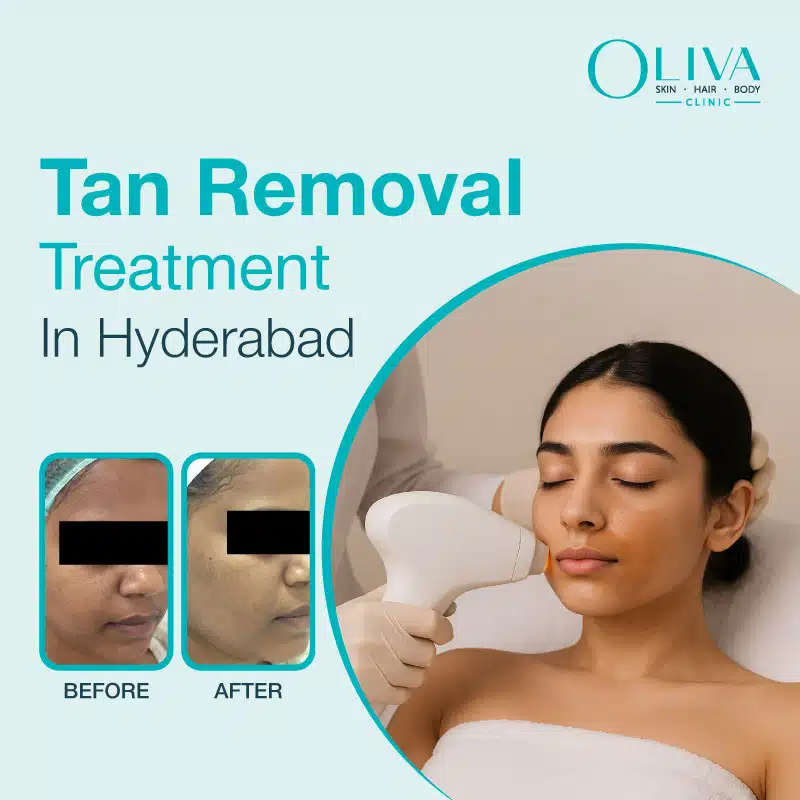
Tan Removal Treatment in Hyderabad: Cost, Results & Procedure
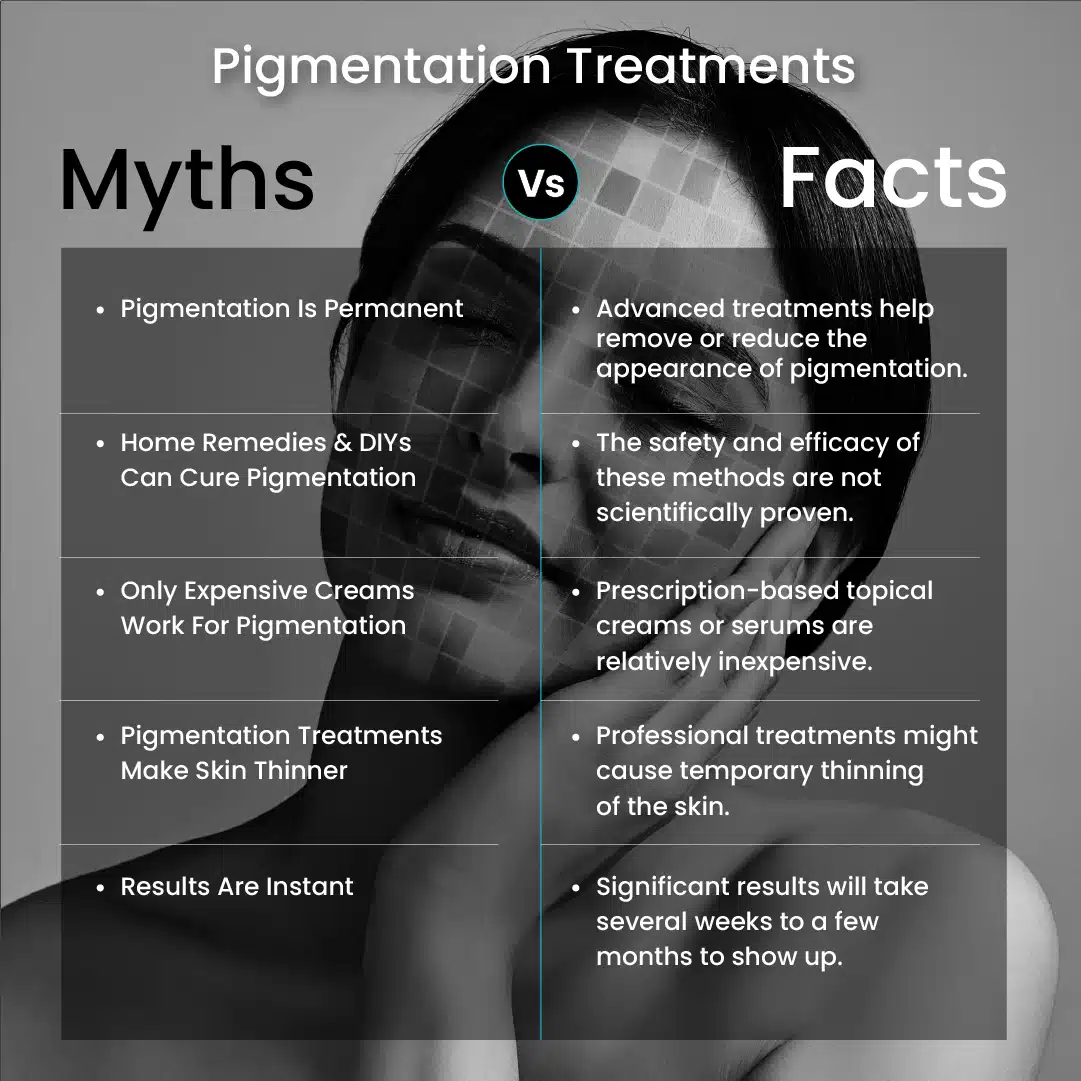
Myths and Facts About Pigmentation Treatments | Dermatologist’s Guide
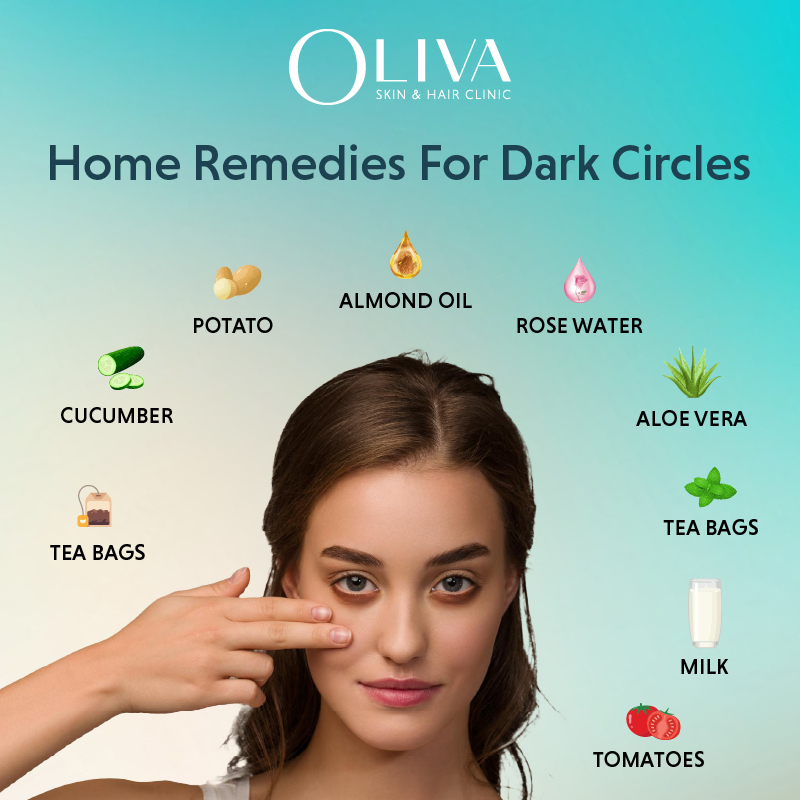
How To Remove Dark Circles Permanently At Home?
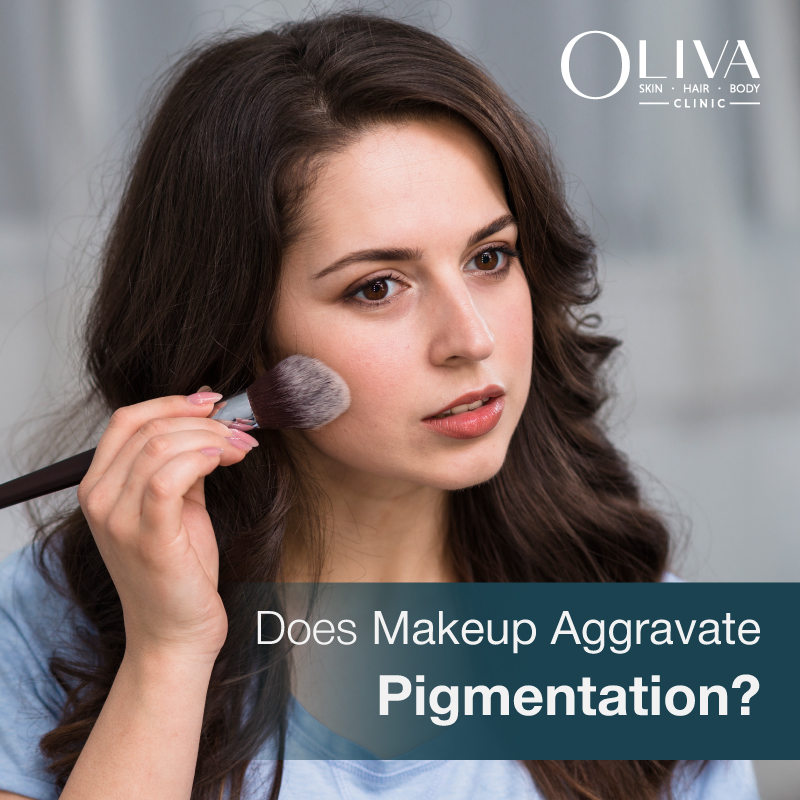
Does Makeup Aggravate Pigmentation? Insights & Facts From Dermatologists
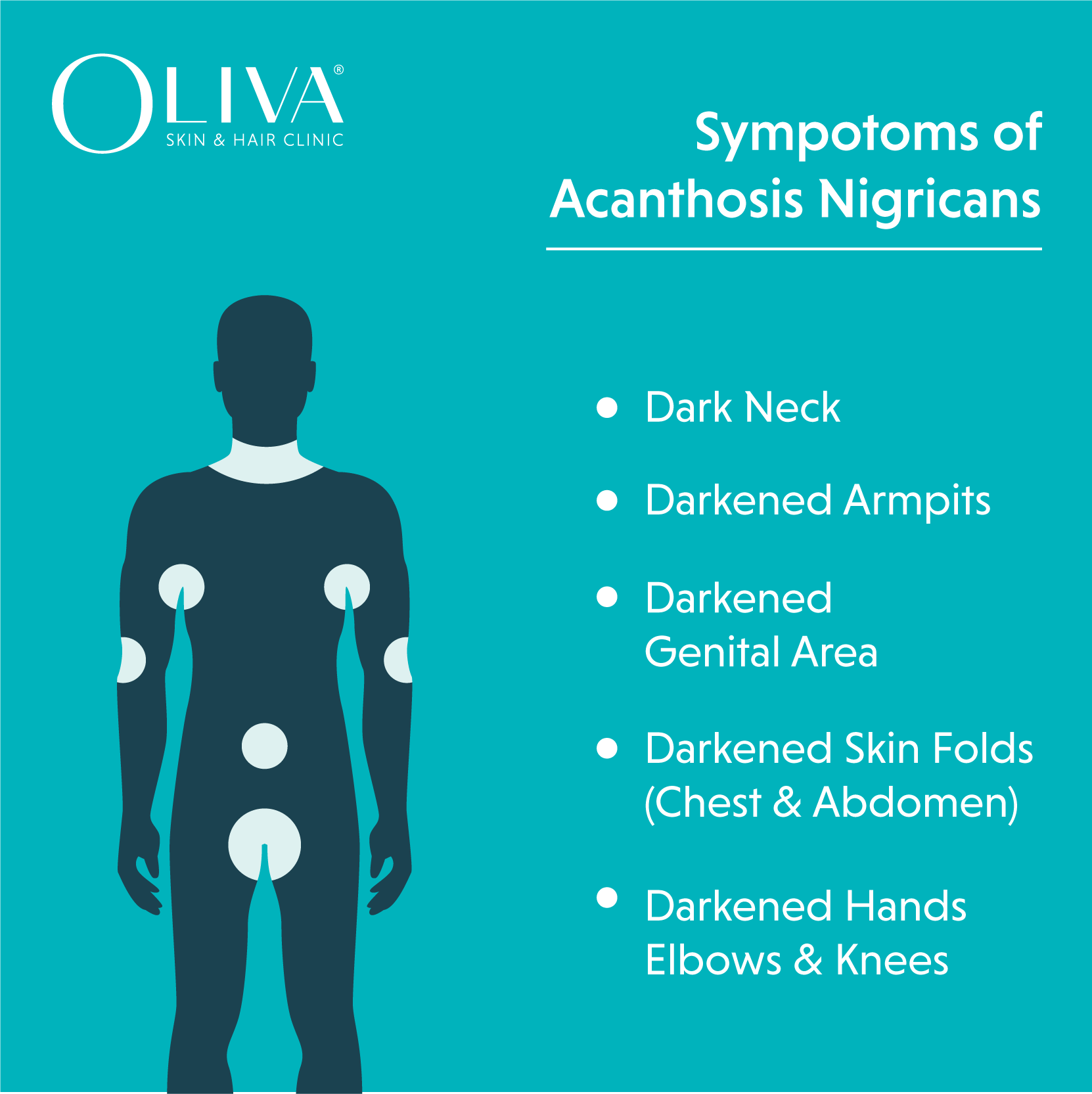
Acanthosis Nigricans Treatment: Diagnosis, Causes & Symptoms



